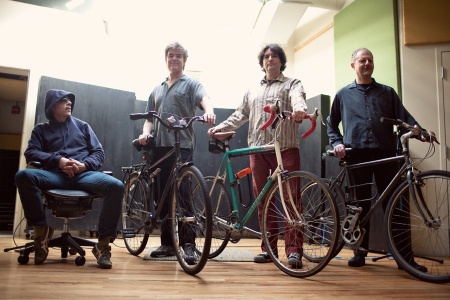
This piece was crossposted to Music Think Tank.
Earlier this week, I talked about how NPR and webcomics have a business model that’s predicated on the primary work (the radio broadcast and the webcomics themselves, respectively) being available for free; once the overhead is covered, the incremental cost of additional readers or listeners is approximately zero. I pointed out that music has historically been very different: the business model for music is based on people paying for the music itself. But now that music can be transmitted digitally it also has, not coincidentally, an incremental cost of zero. And unlike NPR, you don’t need a radio transmitter to share it with your friends.
I know that there is ideology on both sides: people who feel that all music should be free, and people who feel that downloading any music you didn’t pay for is theft. But how you feel about the issue doesn’t change the facts: listeners have the option of not paying for music. And, as Cory Doctorow has pointed out, it’s never going to get harder to move bits around than it is right now. So it might be time to think about a business model that reflects this.
I’m not a musician. I’m a fan. And from my perspective, it’s clear that fans do want to support artists that they like. Taking a page from NPR’s book, here’s a list of things that fans will pay for, even if they can get your music for free:
The music. First and foremost, many people will (and do) pay for digital music, even if they don’t have to. This might be because it’s easier to use iTunes than BitTorrent. Or it might be because they want to support the artist. Or both.
CDs and merch. Atoms, not bits. Do you pledge money to NPR to support the programming, or for the This American Life DVD? I’ve bought merchandise even when there was no rational reason for me to, simply because it was a way to support an artist I love. I buy CDs at concerts, because I know the money goes directly to the artists (and because I can listen to them in my car).
Relationships. Anything signed or limited-edition is not just about the article itself—it’s about expressing a relationship with the artist. And relationships aren’t fungible. Jonathan Coulton and Amanda Palmer are two excellent artists who have close relationships with their fans, who in turn support them.
An experience. The canonical example of this is, of course, the concert – whether it’s $5 to see your favorite local band or hundreds of dollars for an arena show. But this also includes things like doing ‘shrooms in a Lamborghini with your favorite drummer.
Something unique. The illustration at the top of this post is a commissioned portrait (“Portrait of the Blogger, with Johnny Toaster,” by rstevens). Definitely worth paying for.
A narrative. What’s a story worth? Apparently, quite a bit. The Significant Objects art project posts thrift-store finds for auction on eBay, along with the back stories. But the back stories are fictional, and are described as such. Nevertheless, the items go for substantially more than their market value.
What are you willing to pay for? What have you offered to your fans? Other thoughts?










